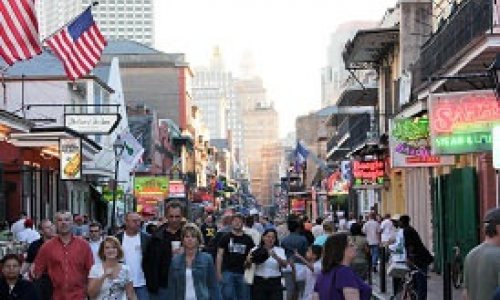LGBT travelers take between five and seven trips a year. One survey found that 71% of gay U.S. respondents possessed valid passports, as opposed to 25% of the total population. Many LGBT travelers have ample disposable income.
Yet for those who travel internationally, the world can seem polarized into gay-welcoming and gay-hostile environments.
Europe west of Russia is free of legislation against homosexuality, and Argentina and Spain may be lightening up on machismo stereotypes. This month alone, a baker's dozen pride events were scheduled around the world, from Athens to Zurich, Paris to Shanghai, Oslo to Tel Aviv.
But citing religious beliefs, anti-colonialism and general disapproval, as many as 81 countries and territories currently limit or forbid same-sex relations.
Zimbabwe President Robert Mugabe has described homosexuals as "worse than dogs, pigs, goats and birds." Russia legislated against vaguely defined gay "propaganda" and saw a rise in anti-LGBT violence. And the ongoing Beverly Hills Hotel boycott resulted from Brunei's impending Shariah legal code suggesting death by stoning of, among others, homosexuals.
How should LGBT Americans deal with the realities of traveling in potentially hostile environments? Four approaches emerged from interviews with more than 20 LGBT (and a couple of straight) agents, travelers, organizational officials and media types as well as hoteliers.
Visit nonwelcoming lands that still might offer natural beauty, ancient history, economic benefit or academic enrichment.
Boycott countries that deny LGBT people their full humanity.
Travel wisely to what might be called "gray zones" of LGBT acceptance, to experience the destination and exchange ideas that lead to mutually improved understanding of conflicting values and cultures.
Be an implicit ambassador for LGBT acceptance.
Going for it
American journalist Grif Shea has permanent residency in South Africa, where he lives with his husband and two children. Shea, who is developing the Griffin Guides travel apps, visits LGBT-averse areas.
"A lot of them are interesting, beautiful or unavoidable for work reasons," he wrote in an email. "And I think change can come through small social interactions: wearing a wedding ring, talking about my children. ... A lot of people just haven't met many gay people or don't know that they have."
Shea lived in Zimbabwe at "the height of Mugabe's 'worse than pigs and dogs' period." Though he was "sorely tempted to find a pink fedora," he kept things low-key rather than risk the government censuring his journalism. At Victoria Falls, staff perplexity about a request for a king-size bed crescendoed when a security guard joined the conversation. But he and his then-partner lived "openly and without fear" in Harare.
Shea doesn't boycott.
"For the Ugandas of the world, I think more people should go," he said of a nation where the penalty for homosexuality has been "reduced" from death to life imprisonment. "The reason these places produce anti-gay legislation, right-wing American missionaries aside, is because the local gay population is becoming more visible and more vocal, and there's a backlash against change. One way to support that change is by visiting and showing a bit of what's possible."
David Thomas is a partner in the education and career-consulting firm Forster-Thomas and a radio co-host with his husband. The two were off to China and Japan when we spoke. ("Nobody seems to care about our sexuality," he said. "Because we make it a nonissue, it becomes a non-issue.")
Thomas describes himself as "a cultural-exchange guy." He won't be "the ugly American."
"I will respect your customs, but only insofar as your customs respect me," he said. "I'm not going to walk down the street in Jeddah in a pink boa, but I'm not going to lie, and I'm not going to go into the closet."
Thomas observed that there was a big difference between being out and proud and being in the middle of nowhere, where he can encounter physical danger. "I'm not stupid," he said. Still, in rural Cambodia, he recalled, he and his husband overcame a one-bed standoff by threatening to go to another hotel. "Did [the desk clerk] turn into a gay-rights marcher? No. But they often will make the right choice, when it comes down to losing a room. I believe in giving them that choice."
John Tanzella, president and CEO of the International Gay & Lesbian Travel Association (IGLTA), represents operators in more than 80 countries. The Fort Lauderdale-based organization takes a pro-go position.
"We don't feel that boycotts really help the LGBT businesses," Tanzella said. "Putin certainly isn't welcoming, but there are LGBT citizens and businesses in Russia, and Delta, for example, flies from [New York] JFK to Moscow."
He said that the decision not to boycott "is all about building bridges" -- in both directions.
Story Continues on Next Page »





